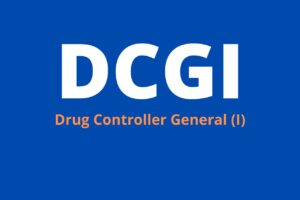Last Updated on October 18, 2023 by The Health Master
Antacids
In recent years, concerns have arisen regarding the prolonged use of antacids, particularly in the context of treating conditions like gastroesophageal reflux disease (GERD) and peptic ulcers.
A study published in “Neurology” sheds light on a potential link between extended use of proton pump inhibitors (PPIs) and an increased risk of dementia.
Led by Kamakshi Laxminarayan, a distinguished professor of neurology at the University of Minnesota School of Public Health, the study examined data from over 5,700 individuals with an average age of 75.
The findings revealed a noteworthy 33% higher risk of developing dementia in those who had used PPIs for more than four and a half years compared to non-users.
Unpacking the Study
The study delves into key statistics that bring the risk into focus:
- 11.6% of PPI users (58 out of 497) developed dementia.
- In contrast, 9.8% of non-users of PPIs (415 out of 4,222) experienced dementia.
The data provides valuable insight into the potential risks associated with prolonged PPI use.
Understanding the Risk Factors
It’s crucial to remember that while the study highlights a potential association between PPI use and dementia, there are other significant risk factors for dementia.
These include:
- Unhealthy lifestyle choices like smoking and excessive alcohol consumption.
- Lack of regular exercise.
- Medical conditions such as diabetes, hypertension, and sensory impairments.
- Social isolation, low literacy levels, and specific inherited genetic predispositions.
These factors collectively play a substantial role in dementia risk.
The History of PPIs
Proton pump inhibitors, commonly referred to as PPIs, are widely prescribed for conditions like GERD and peptic ulcers.
However, the study does not specify which particular PPIs the participants were using.
Analyzing the Data
The research evaluated the relationship between current and cumulative PPI usage and the risk of developing dementia, utilizing data from the Atherosclerosis Risk in Communities (ARIC) Study.
This data encompassed a population-based cohort enrolled from 1987-89 to 2017, providing a robust dataset for analysis.
Length of Usage and Dementia Risk
The average follow-up period for participants was 5.5 years, during which 585 individuals (10.2%) developed dementia.
The study’s authors observed that current PPI use did not correlate with an increased risk of dementia.
However, prolonged usage, defined as over 4.4 years, exhibited a modestly higher risk of dementia in later life when compared to non-use.
Expert Insights
Senior gastroenterologist Rajeev Jayadevan cautions against undue alarm, emphasizing that while the “Neurology” study highlights an association between PPI use and dementia, the difference in incidence between users and non-users is 1.8%.
Additionally, he notes that previous large-scale studies in the United States did not find a conclusive link.
Ensuring Safe Usage
In light of these findings, it’s imperative that individuals exercise caution and seek professional advice when using PPIs.
They are available over the counter, leading to their frequent overuse.
A qualified healthcare provider’s guidance is vital to determine appropriate dosage and duration of use, as long-term PPI usage is indicated for select conditions only.
Disclaimer: This content, including advice, provides generic information only. It is in no way a substitute for a qualified medical opinion. Always consult a specialist or your own doctor for more information. The Health Master does not claim responsibility for this information.
Disclaimer: This article contains information derived from the source mentioned below. Our team utilized an AI language model to rewrite and present the news or article in a unique format.
Boosting Memory Power: Follow these tips and tricks
Weight Loss Medicines: Understanding Risks and Benefits
Antimicrobial Resistance: National Action Plan for NAP 2.0
Myths About Antidepressants: Separating Fact from Fiction
Project Blueprint: 111 गोलियां रोज, डॉक्टरों की निगरानी और 40 लाख डॉलर का Investment
Walking Meditation: What is it, How to Practice, and Its Benefits
Empowering Teens: New Contraceptive Implant to Combat Teenage Pregnancy
Lung Health for breathing easy: Nationwide Initiative launched
Antimicrobial Resistance in India: The Alarming Rise and Potential Solutions –ICMR
5 Essential Benefits of Vitamin C Tablets You Should Know










